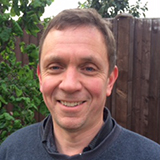 During my psychiatric years, I could only dream of being an equal to health professionals. These days therefore, to be valued as an “expert” is seductive. But we have to move beyond flattery as it makes for an ego-fuelled heart and soggy mind.
During my psychiatric years, I could only dream of being an equal to health professionals. These days therefore, to be valued as an “expert” is seductive. But we have to move beyond flattery as it makes for an ego-fuelled heart and soggy mind.
I was one of five on the patient panel at the recent BMJ/IHI International Forum on Quality and Safety. Alongside Brenda Murray, Jonathan Hope, Paul Wicks, and Rosamund Snow, we were there to provide the “patient perspective”—an often meaningless phrase upon which others hang a thousand meanings.
As with many involvement exercises, the intention behind the Patient Panel seemed pure—to demonstrate a commitment to patients being partners. But, were we there to tell our own experiences? Or to “represent” others? After a few planning calls we decided our role was to (a) check out the extent to which presenters and conference sessions modelled “patient partnership” (b) help organisers of subsequent events learn and improve. Thus we tried to model the conference theme of improvement.
At the event, it was flattering, but uncomfortable, for us to be lauded loudly. I felt in a glass cage, to be shown off. Tick-box. A giant screen boasted that the conference was being delivered “in partnership with patients.” Grandiose. Untrue. We had had no planning input. Session speakers defaulted into claiming that we were there to “be the patient voice.” No! But the message about our role had not been communicated properly—next time perhaps?
I doffed my cynic’s hat: “Another example of the empty ‘put the patient first/at the heart/centre’ rhetoric,” I harrumphed, as I stomped into my first workshop blame-seeking. Coffee helped, as did pinching a few freebies from the myriad commercial stalls. I told myself to grow up and be charitable. Just as in healthcare, people were doing their best. The problem was that past feelings and habitual responses had been triggered—my first learning of the event. (See also “emotional labour” blog).
So, we got on with it. We split up and dived off to different sessions, brought back nuggets of learning, and plotted as to how we could influence things next time. It was fun and exhausting.
Rosamund modelled good practice to lead a successful session on co-production. Jonathan repeatedly urged people to be more ambitious—most memorably challenging the Strategic Advisory Board in our private session with them, to endorse the training of thousands of patients to be improvement leaders. We shall see.
Paul inspired us to think of the wider collective—the growing networks of patients who keep researchers and improvement focused on what matters. Brenda kept us grounded with the judicious use of story-telling—her experiences as a carer, coupled with a warmth and humanity, kept us all connected with what really matters.
I pootled around, picking up clues about the current state of patient partnerships in quality and safety activities. “Patchy” is my verdict. Certainly, much more needs to be done next time—more patient participants, patients leading sessions, a better grasp amongst professionals, and presenters of what patients can bring to the improvement table. One of the highlights for me was a formal debate on the motion “Patients Know Best.” My team took on Paul’s team, and I found myself, oddly, opposing the motion (we won, and Paul will never let me forget it, or perhaps vice-versa?!).
At our hastily planned final panel session, we reflected on our experiences. We had grown aware that we were pushing at a (partly) open BMJ/IHI door—that next year’s conference could be quite different if we played our cards right. So, we resisted tub-thumping and tried to draw upon audience’s expertise as to what more might be done.
During that discussion, it became clear to me (again!) that the patient leader should not ‘be’ the patient voice but to be a channel—to help create the space within which patients and professionals can connect and work better together. Patient “representatives” have to get over themselves in order to bring in, and bring on, others (see also blog on “The Rep Trap.”)
Being touted as “expert” is what I’ve always wanted. Or so I thought. Now I see it is another trap—just like patients being served up as “heroes” (see “patient as hero” blog.) Being a patient “expert” sets you up as “other” and creates the very separation I want to break down.
As people who have trodden thin emotional ice, patients should be wise to the myth of “expert” knows best. Our gift of vulnerability can inspire collective human endeavour. But patients don’t know best. They know different. Together we can work for the best.
David Gilbert is a former mental health service user, patient director, Sussex MSK Partnership (from June) and director of InHealth Associates, that supports effective patient and public engagement.
Competing interests: David Gilbert runs InHealth Associates, a consultancy organisation that supports patient and public engagement.